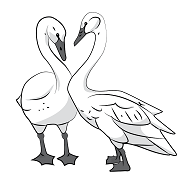Having spent decades gardening, I have had long stretches of time to contemplate the nature of the work that I do. Hours and hours of weeding and deadheading have taught me much about the plant world. It really is not so different from the animal kingdom. It is a common mistake to refer to any plant that we do not like, or that is invasive, as a weed. In truth, they are simply opportunistic plants that have figured out a way to thrive in less than hospitable environments.
I often think about how much work we create for ourselves by insisting that plants obey our whims and suit our fancy. When human beings were hunter/gatherers, they did not encounter “weeds”. Plants, animals, and humans lived together in balance. Today, you must travel nearly to the ends of the earth, in order to find even a small area of wilderness that remains. Almost no spot exists, that has not been disturbed by humans. Wherever the soil has been disturbed and left bare, opportunistic plants waste no time in filling the void. A tiny seedling may look sweet and innocent, but overnight it can grow into a menacing predator, crowding out other plants. Vines such as kudzu, can pull down full grown trees.
Bindweed is another terrorist of the plant world. The vines will wind not only around other plants for support, but also around one another. Those plants that fall prey to the bindweed have the life choked out of them, just like a fly that gets caught in a spider’s web. The plants that become its victims are as helpless as a rodent in a buffalo stampede. Bindweed spreads by underground roots that can extend twenty feet below the soil surface. It also multiplies by seed dispersal from its small white blossoms. It can overtake gardens and fences seemingly overnight, as though it is carrying on its own private orgy. Eradication is difficult. It can merely be suppressed by maintaining a thick layer of mulch and is then easy enough to pull, from the resulting weakened state in which it emerges. Herbicides, which I STRONGLY oppose, are useless. They only add to the already dire contamination of our air, soil, and water. The bindweed marches on, in war-like aggression, unstoppable and leaving behind a wake of destruction – kind of like humans.



